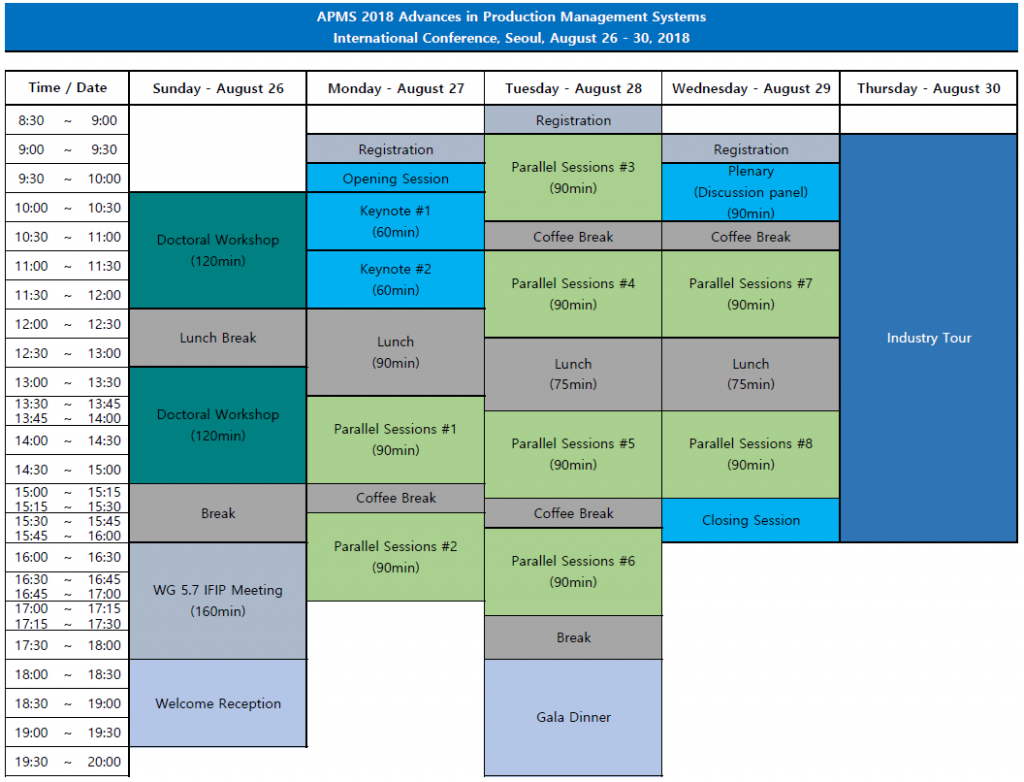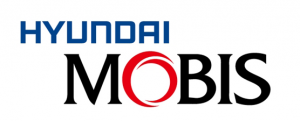Lean and Green Manufacturing
Session organizer(s): Masuru Nakano, Christoph Roser
Description: The session deepens the understanding of lean and green manufacturing to increase the quality of performance and ecology along the entire value chain. Areas of interest include lean manufacturing, green manufacturing, lean management, green supply chain, lean healthcare, lean energy management, and IOT in relation to lean and green supply chain. Particularly valuable is research that merges academic rigor with practical application in industry. Reports of practical experiences in manufacturing and comparison of manufacturing approaches are also very welcome.
Chair contact: nakano@sdm.keio.ac.jp
Reshaping the Supply Chain and Logistics Operations under the Belt and Road Initiative
Session organizer(s): Ming K Lim, Minglang Tseng, Jiayao Hu
Description: The Belt and Road (B&R) initiative was proposed by the Chinese government in 2013 to create the new economic corridors to promote trade, innovation, and communication. This development initiative covers more than 60 countries and regions in Asia, Europe, and Africa. The B&R initiative is a motivated attempt provided by China to response the challenges of globalisation through improving the logistics and supply chain. However, the impacts of the B&R initiative are still under examination. Therefore, this session aims to provide an opportunity for academics and practitioners to discuss and share their expertise to fill this gap.
Chair contact: ming.lim@cqu.edu.cn
Operations Management in Engineer-to-Order manufacturing
Session organizer(s): Erlend Alfnes, Martin Rudberg
Description: There has been significant increase in number of papers related to engineer-to-order manufacturing in previous editions of APMS. ETO research has been presented from mechanical industries, construction, shipbuilding, off shore supplier industries, and other types of project-based manufacturing. Although addressing a similar type of manufacturing challenge, these papers are typically spread among a number of different tracks and sessions. Hence it would be great if we could continue this research trend by inviting speakers and accepting articles from both academics, and industries. This will tackle the important challenges the companies are facing related to operations management in ETO manufacturing.
Chair contact: erlend.alfnes@ntnu.no
Product and Asset Life Cycle Management in Smart Factories of Industry 4.0
Session organizer(s): Irene Roda, Gökan May, Karl Hribernik
Description: With the advent of disruptive digital technologies, companies are facing unprecedented challenges and opportunities. Advanced manufacturing systems are of paramount importance in making key enabling technologies and new products more competitive, affordable and accessible as well as fostering their economic and social impact. This special session aims at addressing the key aspects of product and asset life cycle management in smart factories of Industry 4.0. Topics of interest include, but are not limited to, the following: Industrial big data analytics and cyber physical systems for engineering asset management, Predictive maintenance strategies and technologies for increased operating life of production systems, Data-driven innovation for competitiveness of connected smart factories, Innovative asset life cycle management approaches based on advanced technologies, Decision-making tools for industrial assets management and the role of advanced technologies, Zero-defect manufacturing strategies, tools and methods towards on-line production management, and Manufacturing intelligence for innovative Product-Service design.
Chair contact: gokan.may@epfl.ch
Smart City Interoperability and Cross-Platform Implementation
Session organizer(s): Kary Främling, Dimitris Kiritsis, Bhargav Dave, Prodromos Kolyvakis, Manik Madhikermi
Description: Rapid development of information and communication technology (ICT) has profound effects on human wellbeing. As a result, Smart Cities have emerged as a new and innovative concept to mitigate the problems generated by the urban population growth and rapid urbanization. While Smart Cities improve socio-economic development and quality of life of its resident by ensuring safety, safeguarding environmental concern and creating different value-added services, they also create technological challenges. Despite its enormous potential to serve its residents by providing value added services, interoperability and cross-platform implementation has been major bottleneck to fully realize its potential. This special session focuses on addressing these key aspects of Smart City. Topic of interest includes, but are not limited to, Smart Cities applications and services, Open API, system of systems, and semantic interoperability.
Chair contact: kary.framling@aalto.fi
Product-Service Systems Customer-Driven Innovation and Value Co-creation
Session organizer(s): Khaled Medini, Thorsten Wuest, David Romero, Giuditta Pezzotta
Description: Manufacturing and service industries are increasingly shaped by fierce competition and demanding customers. Consequently, customer orders could hardly be met through traditional ways of doing, e.g. off-the-shelf items. How to make customer demand variety a success driver requires a closer collaboration among the value network actors, connected information systems, and deep understanding of customer requirements and of the product life cycle. This special session seeks papers dealing with one or more of the above aspects in order to enlighten decision makers in the manufacturing and service industries, on the pillars of a customer driven and multi-actor value creation approach.
Chair contact: khaled.medini@emse.fr
Intelligent Diagnostics and Maintenance Solutions for Smart Manufacturing, an SM & CPPS SIG Workshop Session
Session organizer(s): Vittal Prabhu, Michael Brundage, Marco Macchi, Christos Emmanoulidis
Description: In recent years, there is growing acceptance that well executed maintenance operations lead to enhanced profitability and productivity of the manufacturing enterprise. With the advent of the Internet of Things and Industrie 4.0, the opportunity for smarter diagnostics and maintenance is apparent. Key challenges to achieve such systems include multitudes of integration between data, knowledge management, artificial intelligence, and analytical techniques. Moreover, integration of maintenance planning, control, and execution with other manufacturing operation management activities is also necessary. The objective of this session is to highlight prospects, methodologies, models, practices, as well as solutions and achievements linked to intelligent maintenance decision making solutions and diagnostics in factories. We invite both paper submission to the session or presentation of past success stories. For the latter, please contact the session chairs.
Chair contact: prabhu@engr.psu.edu
Service Engineering based on Smart Manufacturing Capabilities, a Collaborative Session of the SIG’s for Service Engineering and SM & CPPS
Session organizer(s): Stefan Wiesner, Serm Kulvatunyou, Paolo Gaiardelli, Sergio Cavalieri, David Romero
Description: Smart Manufacturing technology opens up new opportunities for service development. The objective of this session is to discuss the challenges of identifying the right service options based suitable technology for smart product-service solutions in manufacturing: New possibilities for Service Engineering / “Design for Service”, Consequence of data ownership and analytics for service development, Influence of shortening life cycles on service and technology selection, New stakeholder roles along the life cycle, and Technology driven servitized Business Models. This Special Session welcomes papers that offer novel research contributions in any aspect of previous research areas of interest. The focus is on high-quality original unpublished research, case studies and real implementation experiences.
Chair contact: wie@biba.uni-bremen.de
Industrial Ontologies Foundry, an SM & CPPS SIG Workshop Session
Session organizer(s): Serm Kulvatunyou, Dimitris Kiritsis, Farhad Ameri
Description: Industry and manufacturing is evolving ever more rapidly. It continues to become more complex, interconnected, and geographically distributed. The underlying economic model is based on a) distribution of industrial processes and their supply chains; b) internal and external collaboration, subcontracting, and offshoring; and c) flexibility. As a result, more systems and software are being created to support the different aspects and phases of the manufacturing product life cycle. Thus, interoperability becomes more critical among all types of systems used in industry, especially information systems, but is considered a challenging topic. Interoperability is a continuing challenge for information systems and those systems that rely heavily on the use, or production of, information. Consensus-based controlled vocabularies, and the more advanced technology called ontologies have proved themselves a valuable tool for achieving interoperability in various domains such as biology and finance. Recently a global community has been form to provide a ubiquitous ontology for the industrial manufacturing domain, namely Industrial Ontology Foundry (IOF). IOF is in its proof-of-concept stage. In that spirit, this session invite researchers and practitioners to share practical experiences in developing and applying ontologies to product management. The session also looks for value propositions, success stories, and issues in adopting and applying ontologies in the production management domain.
Chair contact: serm@nist.gov
Smart Manufacturing System Characterization, an SM & CPPS SIG Workshop Session
Session organizer(s): Marco Macchi, Serm Kulvatunyou, Marco Taisch, Sangsu Choi, Thorsten Wuest
Description: Technologies for improving a manufacturing system or factory toward being smart is abundant. However, manufacturers, large and small, need to choose and prioritize these technology adoptions. The session is focused on assessing a manufacturer’s capability, capacity, and readiness level to implement Smart Manufacturing. We will look at the technology maturity, process maturity, organizational maturity, personnel capability and maturity which can be used to determine what aspects must be improved to effectively apply Smart Manufacturing applications, systems, and hardware. The vision of the session is to come up with a method for assessing a manufacturing system and its management practices, for identifying improvement opportunities and for recommending SM technologies and standards for adoption by manufacturers.
Chair contact: marco.macchi@polimi.it
The Operator 4.0: Collaborative Cyber-Physical Production Systems & Human Systems, an SM & CPPS SIG Workshop Session
Session organizer(s): David Romero, Paola Fantini, Johan Stahre, Thorsten Wuest, Marco Taisch
Description: New forms of collaborative cyber-physical production systems and human systems, such as the Operator 4.0 vision, are needed to better support a socially sustainable future of work at the factory of the near-future. This special session aims to help to redefine the role of the operators in smart factories, remembering that most of the factories are still socio-technical production systems, where machines production and human work should be designed to optimally leverage and harmonize the strengths of humans and robots/machines to achieve new levels of efficiency and productivity that neither can achieve alone. APMS researchers, engineers, and practitioners are invited to present state-of-art advances, discuss open issues and identify research directions towards the successful and socially sustainable design and engineering of future of production. Topics of interest include, but are not limited to, the following: Socially Sustainable Manufacturing, Human-Centric Manufacturing, Human Cyber-Physical Systems, Human-Machine Symbiosis, Humans as Agents in Multi-Agent Systems, Decision-Support for Human Operators, and Aided Automation for Humans Operators.
Chair contact: dromero@itesm.mx
Manufacturing Performance Management in Smart Factories, an SM & CPPS SIG Workshop Session
Session organizer(s): Senthilkumaran Kumaraguru, Seung-Jun Shin, Serm Kulvatunyou, Hyunbo Cho
Description: The performance management of Smart Factory requires a new dimension of the state-of-the-art ubiquitous/pervasive computing technologies and tools. The Smart Factory represents a context-sensitive manufacturing environment that can handle turbulence in real-time production using decentralized information and communication structures for an optimum management of production processes. However, performance management of such complex smart factories requires concentrated research efforts in information modelling, metrics, and analysis of performance characteristics. This special session invites papers related to modelling complex production systems, systems analysis for performance concerns, information synthesis and modelling and infrastructure technologies. Performance modelling for smart factories gets challenging under turbulent production conditions and simulation-based modelling methodologies can help overcome production problems and optimise performance. Research papers related to performance management for resilient production systems are welcome.
Chair contact: skumaran@iiitdm.ac.in
Smart Production for Mass Customization
Session organizer(s): Ann-Louise Andersen, Kjeld Nielsen, Thomas D. Brunoe
Description: Mass customization aims at turning customer heterogeneities into opportunities and meeting individual customer needs with near mass production efficiency. The current trends of Industry 4.0, digitalization, new technologies, as well as changeable, reconfigurable, and flexible production concepts have the possibility to elevate mass customization to new levels. The special session welcomes research contributions in cutting-edge research on manufacturing enabling Mass Customization, including changeable and reconfigurable manufacturing, modular production platforms, as well as how to manage variety, product families, and platforms in production. Furthermore, the special session welcomes case studies, success factors for Mass Customization manufacturing, and best practice in industry.
Chair contact: ala@mp.aau.dk
Experimental and Experiential Learning in Industrial Engineering and Management
Session organizer(s): Nick Szirbik, Riitta Smeds
Description: It takes many years of experience for a well-educated newcomer to learn how to manage the complexity of large system projects. The proficiency to tackle and manage for example the many interrelated phases of a product development project, or the complex design and construction phases of networked construction projects, grows only through hard-earned experience in practice. At the same time, the very practices are changing because of digitalization, and their related experiential knowledge has also to change.
The key question for academic education in the field of Industrial Engineering and Management is: How can the experiential knowledge of managing complex projects be developed through other means than real-life experience? And how can future practices be experimented, tested and developed, to gain experience from them in advance? As an answer, our SIG proposes games and simulations, where experience can be gained in a simulation environment that provides a requisite model of the system to be “experienced” and learned from.
We invite researchers and practitioners to submit papers, tutorials, demos, and proposals for games and simulations that address the early and fast learning processes of future or beginning practitioners in the field of Industrial Engineering and Management.
Chair contact: n.b.szirbik@rug.nl
Other Expected Speical Sessions
WG5.7 research workshop
Disaster & humanitarian logistics
Industry session
Cyber-physical systems
Selected papers from APMS 2018 will be invited to submit an extended version to International Journal of Production Research, Production Planning & Control, and International Journal of Industrial Engineering: Theory, Applications and Practice.
Detailed instructions for submission to International Journal of Production Research, Production Planning & Control is shown below.
The conference program includes industry tours with on-site visits to LG Electronics and Hyundai Mobis.
The tours will take place on August 30, 2018 after the official conference.









